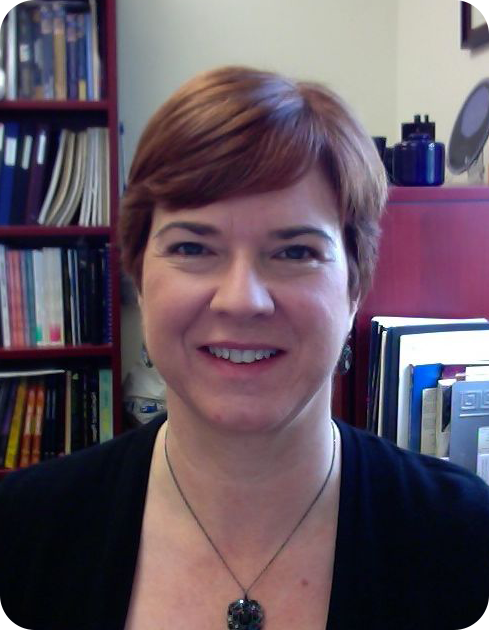Caroline Simpson’s work is out of this world – literally. An astronomy professor in the College of Arts, Sciences & Education (CASE), she spends her time studying how stars and galaxies were formed.

As a child one evening at her family’s cottage in Long Island, she looked out her bedroom window and saw the biggest, brightest “star” she had ever seen before. When she asked her parents about it, she was told it wasn’t a star at all, but the planet Venus. She had to know more. “Astronomy predates medicine,” Simpson says. “It’s a survival skill – if you didn’t understand the seasons, you died. It’s the oldest science.”
She took an astronomy course in high school, and ended up double-majoring in astronomy and physics in college due to the number of physics courses that were part of the astronomy program. “Physics describes the fundamental laws that run the universe. Astronomy uses the universe to discover those laws.” At FIU, in fact, she is part of the Department of Physics, given the connection between the fields.
After college, she got a job working with the Hubble Space Telescope – specifically, the Guide Star Catalog. In order to accurately point and use the Hubble Space Telescope, stars needed to be identified to be used as guidance and reference points. Simpson and the team digitized the entire sky, identifying the precise location and brightness of over twenty million objects in space.
Simpson came to academia via an unconventional path. She was working on her Ph.D. at the University of Florida when she gave a seminar at FIU. It went over so well she was offered a position the next semester as a senior research scientist, which meant she was teaching introductory classes while also finishing and defending her thesis. She looks back at the challenges of such a balancing act as good training for the rest of her academic career.
Her research focuses on star formation in dwarf galaxies. Star formation looks at how galaxies evolve, and dwarf galaxies are the most numerous type of galaxy in the universe, so ultimately, she studies how the universe has changed and evolved over time. Studying such big concepts is par for the course in her field. “Some of the most fundamental human discoveries come from astronomy. Newton discovered gravity because he was originally interested in why the moon stayed in orbit.”
In addition to the astrophysics classes she teaches for students pursuing a minor in astronomy, she also teaches introductory astronomy for non-science majors, and won the 2016 Astronomical Society of the Pacific’s Richard H. Emmons Award for excellence in college astronomy teaching.
Simpson is also dedicated to the advancement of women in her field. She has a slideshow on her website entitled “Historical Women in Astronomy,” which she called her favorite talk to give. Her educational experience was not as male-dominated as other STEM professions. Of the four people in her astronomy class, three were women, and because the astronomy program was split over five universities, some of which were women-only, there were always women around.
However, in the early nineties, it was becoming clear that the lack of women in astronomy was an issue, one Simpson wanted to help address. She served on the American Astronomical Society’s Committee on the Status of Women in Astronomy for eight years, which gave her more formal training in the areas of unconscious bias and intersectionality. She is also part of the inaugural group of CASE Faculty Fellows, a program created to promote and enhance the relationship between CASE leadership, faculty and departments. She is the diversity advocate for the College, working together with the Office to Advance Women, Equity & Diversity. In her role, she has worked with departments in identifying diversity advocates for faculty hiring committees and ensuring diversity goals are met through best practices within the hiring process.
“Where does everything come from?” is a question humanity has been asking for years. Simpson has an answer. “Stars use nuclear fusion to create elements. Almost every other element in the universe, including the ones that make us as humans, comes from stars. So when Carl Sagan said ‘we’re made of star-stuff,’ it wasn’t just poetry. It’s fact.”
FIU Women in Research is a regular feature of ADVANCE News that examines the impressive work female faculty members are doing at the university.
